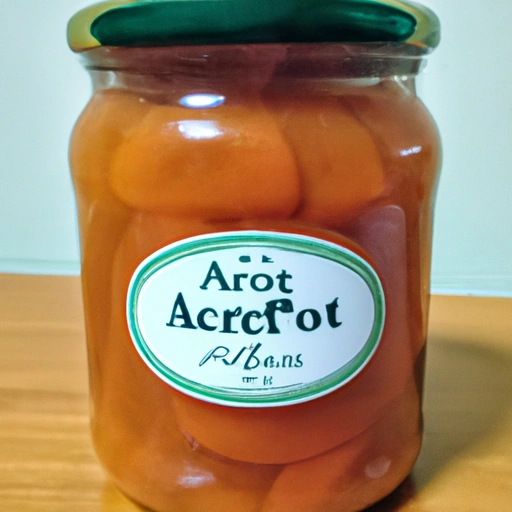Apricot Preserve
Description

Common uses
Apricot preserves are known for their versatility in the kitchen. They are commonly used as a spread for bread and pastries, a glaze for meats, a filling for cakes and pastries, and even as a sweetener in sauces and dressings. Their unique combination of sweetness and acidity makes them an excellent complement to a variety of dishes.
Nutritional value
Calories
A typical serving of apricot preserve (1 tablespoon or about 20 grams/0.7 oz) contains approximately 48 calories.
Protein
Apricot preserve contains a minimal amount of protein, less than 0.1 grams per serving.
Fat
There is virtually no fat in apricot preserves, making them a low-fat option for adding sweetness to dishes.
Carbohydrates
Most of the calories in apricot preserve come from carbohydrates, with about 12.7 grams per serving, primarily from sugars.
Vitamins
While much of the vitamin content is reduced during the cooking process, apricot preserves still contain some Vitamin A and Vitamin C.
Minerals
Apricot preserves provide small amounts of minerals such as potassium and iron.
Health benefits
Apricot preserves, while high in sugars, can offer some health benefits when consumed in moderation. The presence of fruit-derived antioxidants and compounds may contribute to overall health.
Potential risks
Due to the high sugar content, excessive consumption of apricot preserves can lead to increased calorie intake, weight gain, and potential blood sugar spikes. It's also not suitable for those on low-sugar diets.
Common recipes
Apricot preserve is often found in recipes for thumbprint cookies, fruit bars, and Danish pastries. It is also used in savory dishes such as apricot-glazed chicken or pork.
Cooking methods
It can be incorporated into a recipe by spreading, filling, or glazing, depending on the desired outcome.
Pairing with other ingredients
Apricot preserves pair well with almonds, cream cheese, poultry, and pork, as well as spices like ginger and cinnamon.
Summary
Apricot preserve is a delightful and versatile ingredient that brings a sweet, yet tart flavor to both sweet and savory dishes. With its long-standing history and numerous culinary applications, it is a staple in kitchens worldwide. Although it is high in sugars, when used in moderation, it can be part of a balanced diet and add a burst of flavor to your cooking.